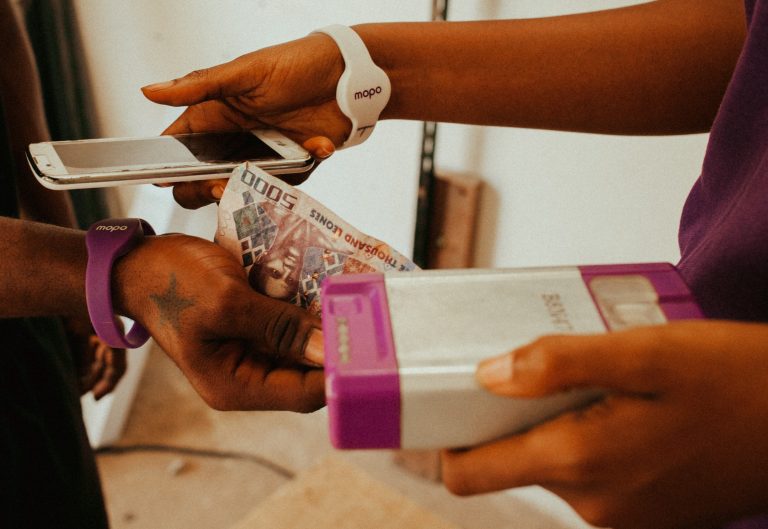Lomond strengthens student let portfolio with acquisition of Leeds firm
Housebuilder puts another £10,000 into support for cancer charity
Hydrogen has a place in UK’s future energy landscape, says new report
Coca-Cola Europacific Partners to invest £42.3m into Wakefield factory
New jobs created at Keighley manufacturing company following grant
South Yorkshire battery company lights up sub-Saharan Africa
Sheffield-based pay-per-use battery rental company MOPO has completed its 20 millionth battery rental in sub-Saharan Africa – and is only just getting started, according to CEO Chris Longbottom.
He says: “We’re just getting started. Our 20 million battery rentals are just the beginning of MOPO’s mission to bring clean energy to all, and we’re ready to take this even further.
“We’re revolutionising power access. Our proprietary batteries and pay per use rental model are transforming energy for millions.”
The companys’ batteries light homes, charge devices, and powering e-mobility. “It’s a lifeline for millions and contributes to socio-economic development while reducing reliance on fossil fuels. This is all done at a significantly reduced cost to existing power sources and at a huge environmental benefit,” he added.
Each MOPO battery is equipped with proprietary technology that ensures energy is only released after agent payment via the MOPO App, even in offline settings. Additionally, the batteries are continuously tracked through the MOPO Platform, allowing the Company to monitor usage, location, and recycling readiness.
Working with a team of world-leading partners including the University of Sheffield, MOPO is already operating in countries including Nigeria, the Democratic Republic of Congo, Liberia, Chad, Sierra Leone, and Uganda, and plans to expand across the continent.
Ministers must look again at key employment proposals after sharp wake-up call from Government’s own watchdog, say small firms
Tadcaster bus station set for £500,000 revamp
The Gluten Free Kitchen trebles in size following six-figure funding
The Gluten Free Kitchen has trebled the size of its business after completing its successful move to new premises at Leyburn Business Park in Leyburn, North Yorkshire.
The increase in space at the new 3,000 sq ft unit has led to sales almost doubling, enabling the team at The Gluten Free Kitchen to meet rising demand for its range of sweet and savoury gluten free, wheat free, soya free, dairy free, egg free food.
This includes a new festive range which has just launched, including Christmas puddings and mince pies as well as launching four new products with Ocado: chocolate crunch cakes, strawberry crunch cakes, goats cheese tarts and cheddar tarts.
The Gluten Free Kitchen received investment from FW Capital through the first Northern Powerhouse Investment Fund in 2023 and is now seeing their plans come to fruition. The funding allowed the business to relocate after outgrowing its previous site. The new premises include kitchen and warehouse facilities.
The funding has also supported the expansion of the team and development of new product ranges including the products made exclusively for Ocado. It has also assisted the redevelopment of The Gluten Free Kitchen website making it easier for customers to place their online orders.
Sue Fleming, Director at The Gluten Free Kitchen said: “We’d never have done the move without FW Capital and we’re delighted to be in our new premises. Our previous site was fit to burst, and we just didn’t have the space to meet increased demand and expand our ranges of treats.
“We’ve nearly doubled sales since we’ve relocated and brought in new people to support our kitchen and warehouse activities. Next year we’re hoping to further expand the team. We’re now in the midst of the Christmas run-up and excited to launch a fantastic new Christmas Pudding using a great recipe.
“We’re also going great guns with Ocado which is fantastic. The investment from FW Capital has also helped us to update our website, making it more user friendly for consumers.”
Lindsey McMenamin, Portfolio Manager at FW Capital, added: “I’m thrilled with the success that Sue and the team at The Gluten Free Kitchen are enjoying, and it is great to see the impact funding for growth can have.
“Its super to catch up with Sue and see all the exciting developments! It’s a busy time for the team in the run up to Christmas with the demand for ‘free from’ products increasing, and this new facility is allowing them to take full advantage of that!”
The Gluten Free Kitchen was established in 2005 by Sue Fleming after she saw the challenges faced by people with coeliac disease when sourcing good quality food that is free from gluten.












